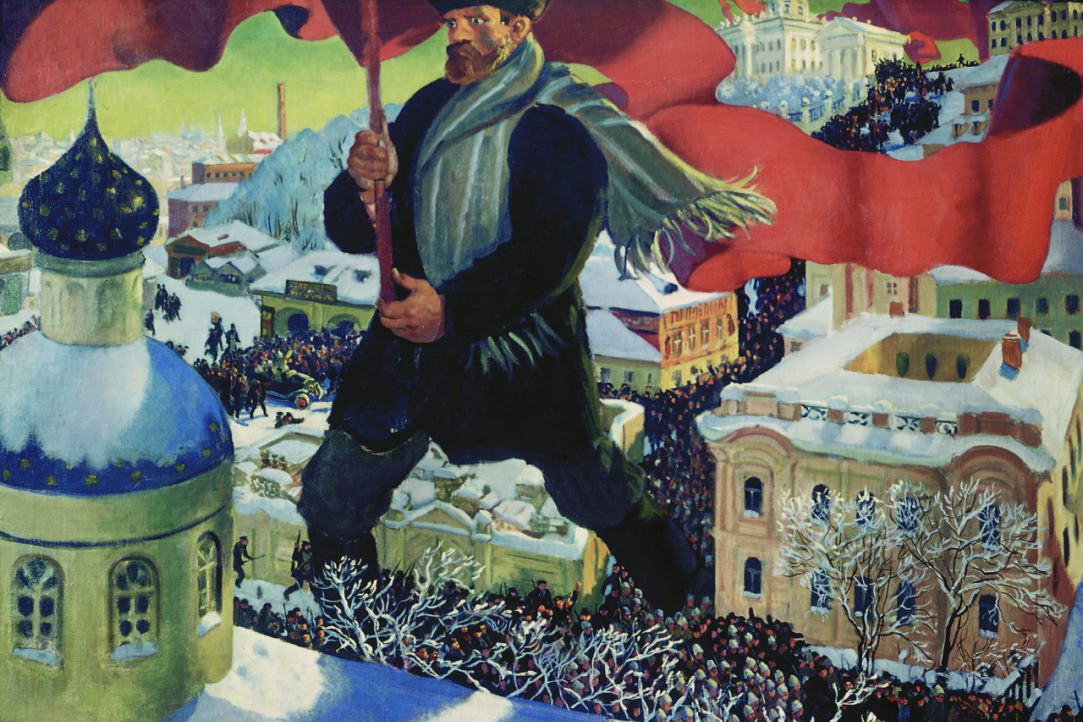
Technological Unemployment
In his book, Rise of the Robots: Technology and the Threat of a Jobless Future, futurist Martin Ford warns of 75% unemployment by 2100, as robots will finally defeat humans and half of all existing occupations will disappear. Should we believe it? Prominent Russian economist and deputy director of the HSE Centre for Labour Market Studies Rostislav Kapeliushnikov does not think so. According to his paper 'Is Technological Change a Devourer of Jobs?'', predictions of a 'labour market apocalypse' with mass loss of jobs caused by technological progress are unfounded.
.jpg)
Experiencing Culture Shock
Conscious decision-making and internalized intentions, as opposed to extrinsic influencing factors, are the key to a student’s successful adaption to life in a foreign country. This was confirmed by research carried out by a group of scientists which included Ken Sheldon, Academic Supervisor and Head of the International Laboratory of Positive Psychology of Personality and Motivation at the Higher School of Economics.

Suspicious Other
In many countries, human empowerment – including freedom of expression and action – tends to increase people’s generalised trust in other people, particularly strangers. However, such an increase is usually gradual, reaching its peak in affluent, modernised democracies. In contrast, in countries with below-average levels of development, people, especially educated ones, often demonstrate a lack of trust in strangers, according to HSE researchers.

Visual Perception of Summary Statistics Not Following Mathematical Rules
Cognitive psychologists of the Higher School of Economics have experimentally demonstrated that people are capable of estimating the mean size of visible objects and their approximate number simultaneously, showing for the first time that these two cognitive processes are independent of each other and do not follow the rules of mathematical statistics. The results of this experiment, published in PLOS One, can inform new approaches to statistical data visualisation and statistical education.

How Spatial Navigation Correlates with Language
Cognitive neuroscientists from the Higher School of Economics and Aarhus University experimentally demonstrate how spatial navigation impacts language comprehension. The results of the study have been published in NeuroImage.

What Mitigates the Consequences of Recession for Companies?
HSE experts demonstrated that companies with foreign participation have an easier time overcoming the consequences of economic recessions. The results of the study were presented in the paper ‘Lean against the wind: The moderation effect of foreign investments during the economic recession in Russia’ published by the Journal of Economics and Business.

Overcoming the Revolution
A hundred years has passed since the October Revolution of 1917, but this event still hasn’t reached its logical conclusion. Its consequences are still crucial in defining the political system in Russia today and fostering divisions in society, believes Andrey Medushevsky, Professor at the HSE Faculty of Social Sciences, political scientist, historian and author of the book A Political History of the Russian Revolution: Norms, Institutions and Forms of Social Mobilization in the 20th Century.
Alzheimer, Parkinson Et Al
Globally, the burden of neurological disorders (Alzheimer’s disease, Parkinson’s disease, stroke, epilepsy etc) has increased substantially over the past 25 years. This problem is the topic of a recent report by the Global Burden of Disease (GBD) international project, which was published in The Lancet. One of its participants is Vasily Vlassov, Professor at the HSE Faculty of Social Sciences.

Immeasurable Hardiness of Character
The Grit Scale questionnaire has gained popularity over the past decade, not only in research but also in practical psychology and in employee selection. The questionnaire is used to measure 'grit' – a personality trait which combines perseverance in reaching one's goals, on one hand, and consistency of one's interests over time, on the other. HSE researchers have found a way to prove that 'grit' is not a single personality trait and the Grit Scale measures two independent constructs.

Artificial Intelligence Society
Cultural Evolution, a new book by Ronald Inglehart, American sociologist, professor at the University of Michigan and academic supervisor of the HSE Laboratory for Comparative Social Research, is currently being prepared for publication in Russia. Russian readers will be the first to read the prominent scholar's book, as its Russian translation will come out before the American original. The Russian translation of the book has been prepared by the Liberal Mission Foundation and the LCSR.


Deadline for applications to present academic reports - January 20, 2025